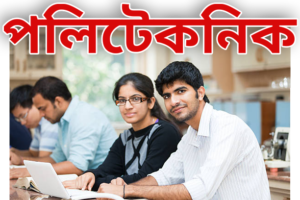Diploma in Electrical Engineering EE
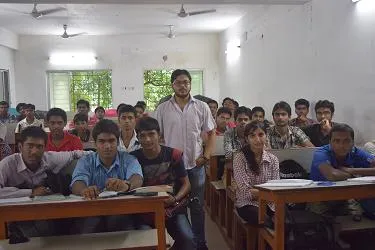
SRIST, the Best Polytechnic Diploma in Electrical Engieering College in Kolkata
SRIST (Shree Ramkrishna Institute of Science and Technology), Kolkata is one of the group colleges of SVGI (Swami Vivekananda Group of Institutes).
SRIST OFFERS SCHOLARSHIPS TO THE ELIGIBLE STUDENTS
| The aim of the department is to impart quality technical education at par with the premier institutions towards excellence in domain knowledge and ethical standard. |
| M1: To impart quality knowledge transfer through efficient and dedicated faculty members. |
| M2: To steer the students to become future leaders with broader knowledge base. |
| M3: To inculcate the knowledge of values and ethics to the future leaders. |
| M4: To expand knowledge even beyond the scheduled syllabus. |
| Program Educational Objectives (PEOs) |
|---|
| PEO1: To impart students the fundamentals of electrical engineering from the grass root level. |
| PEO2: To guide the students to apply the knowledge of basic engineering and practical skills for solving engineering problems. |
| PEO3: To motivate students to participate in academic activities so as to grow their interest in pursuing higher studies and R & D activities. |
| PEO4: To inculcate moral and ethical values in students along with engineering skill. |
| Program Specific Outcomes (PSOs) |
|---|
| PSO1: To provide students the fundamental of Electrical Engineering knowledge of basic subjects like physics, Mathematics, Chemistry and to train them with good communication skill & general knowledge. |
| PSO2: To educate students in core Engineering domain and drive their instinct towards Engineering problem solutions. |
| PSO3: To see our students pursuing higher studies and R & D activities in reputed institutions. |
| PSO4: To see our students as an ethical and responsible Engineering professional. |
| Program Outcomes (POs) |
|---|
| PO1: Engineering knowledge: Apply the knowledge of mathematics, science, engineering fundamentals, and an engineering specialization to the solution of complex engineering problems. |
| PO2: Problem analysis: Identify, formulate, review research literature, and analyze complex engineering problems reaching substantiated conclusions using first principles of mathematics, natural sciences, and engineering sciences. |
| PO3: Design/development of solutions: Design solutions for complex engineering problems and design system components or processes that meet the specified needs with appropriate consideration for the public health and safety, and the cultural, societal, and environmental considerations. |
| PO4: Conduct investigations of complex problems: Use research-based knowledge and research methods including design of experiments, analysis and interpretation of data, and synthesis of the information to provide valid conclusions. |
| PO5: Modern tool usage: Create, select, and apply appropriate techniques, resources, and modern engineering and IT tools including prediction and modeling to complex engineering activities with an understanding of the limitations. |
| PO6: The engineer and society: Apply reasoning informed by the contextual knowledge to assess societal, health, safety, legal and cultural issues and the consequent responsibilities relevant to the professional engineering practice. |
| PO7: Environment and sustainability: Understand the impact of the professional engineering solutions in societal and environmental contexts, and demonstrate the knowledge of, and need for sustainable development. |
| PO8: Ethics: Apply ethical principles and commit to professional ethics and responsibilities and norms of the engineering practice. |
| PO9: Individual and team work: Function effectively as an individual, and as a member or leader in diverse teams, and in multidisciplinary settings. |
| P10: Communication: Communicate effectively on complex engineering activities with the engineering community and with society at large, such as, being able to comprehend and write effective reports and design documentation, make effective presentations, and give and receive clear instructions. |
| P11: Project management and finance: Demonstrate knowledge and understanding of the engineering and management principles and apply these to one’s own work, as a member and leader in a team, to manage projects and in multidisciplinary environments. |
| P12: Life-long learning: Recognize the need for, and have the preparation and ability to engage in independent and life-long learning in the broadest context of technological change. |
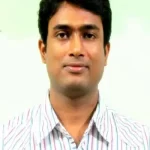
Vice- Principal
Experience-7.5years
Qualification-B.Tch, M.Tech
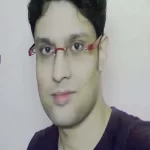
Asst. Professor (Head of the Department)
B.Tech, M.Tech
Experience: 6 Years
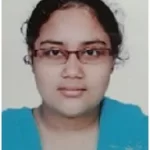
Prof. Ayantani Bhattachariya
Asst. Professor
B.Tech, M.Tech
Experience: 2 Years
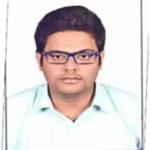
Asst. Professor
B.Tech
Experience: 1.5 Years
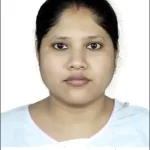
Asst. Professor
B.Tech, M.Tech
Experience: 2.5 Years

Asst. Professor
B.Tech, M.Tech (Pursuing)
Experience: 2 Years

Asst. Professor
B.Tech, M.Tech Pursuing
Experience: 6.2 Years
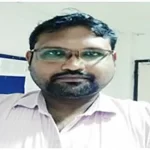
Prof. Srinjoy Panja
Asst. Professor
B.Tech, M.Tech
Experience: 8 Years
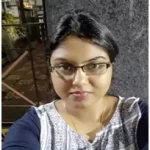
Asst. Professor
B.Tech, M.Tech,
Experience: 2 Years

